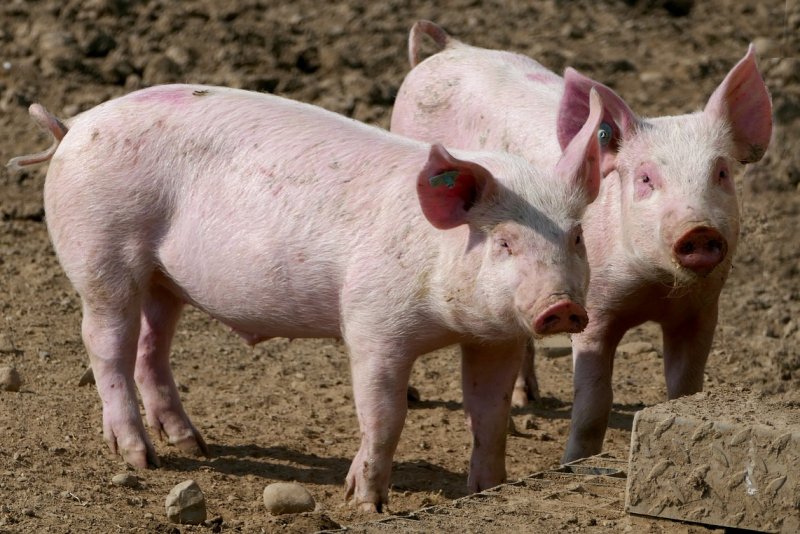By Jessie Higgins

Closed slaughterhouses are backing up the supply chain, leaving too many pigs on farms for farmers to care for. Photo by ramboldheiner/Pixabay
EVANSVILLE, Ind., April 23 (UPI) -- With coronavirus outbreaks closing slaughterhouses across the country, the American hog industry is running out of space to physically keep a backup of live pigs.
Hog farms are so crowded that producers are starting to euthanize their animals.
"I really, really don't want to kill my pigs," said Howard AV Roth, president of the National Pork Producers Council, who raises and weans pigs in Wisconsin.
"But it is getting close here. I know there are farmers who have had to kill their pigs, farmers are aborting sows. It's really awful," Roth said.
The issue stems from the more than a dozen meat packing plants that have closed since the start of the coronavirus pandemic. The most recent occurred Wednesday when Tyson Foods announced it would shut its largest pork producing plant, which is in Waterloo, Iowa.
On Monday, JBS, an international meat processing company, closed its third processing plant, in Worthington, Minn. Smithfield Foods closed its pork processing plant in Sioux Falls, S.D., last week, while Cargill closed a plant in Hazleton, Pa. Other plants have closed, too, while far fewer have reopened.
The closures have significantly reduced the nation's slaughter capacity.
In a normal week, the American pork industry kills 2.5 million pigs. This week, it will kill only 2 million, Roth said.
"We're looking at a backup of a half a million pigs a week, starting this week," he said. "And we were already backed up by about a half million. This is bad."
The problem also is sending pork prices plummeting. Lean hog futures were trading at about 44 cents per pound Wednesday, down from around 84 cents at the start of the year, according to the Chicago Mercantile Exchange.
The price matters little, though, when farmers can't sell their animals, Roth said.
"This is not milk you can spill or crops you can till into the ground," said Jim Monroe, a spokesman for the National Pork Producers Council, based in Washington, D.C. "These are live animals that need care."
Farms across the country have started to go out of business as a result of the pandemic. Two of the producers to whom Roth normally sells weaned pigs have gone under, he said. Others with whom he works are close to failing, and the future of his farm depends on how long the slaughterhouse closures continue, he said.
"This is our biggest crisis ever in pork production," said Joseph Kerns, the president of Iowa-based Kerns & Associates, a consulting firm that specializes in livestock. "And I don't say that lightly."
It is too soon to predict how many farms will go under, Kerns said. But it could be a huge number.
"This could have a huge, long-term impact on the hog industry," he said.
No comments:
Post a Comment